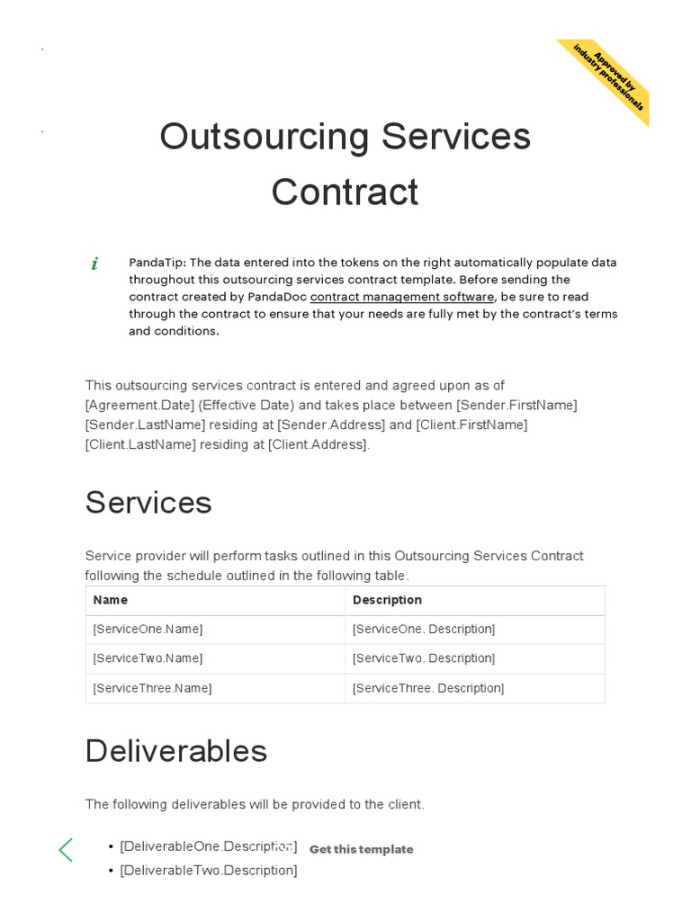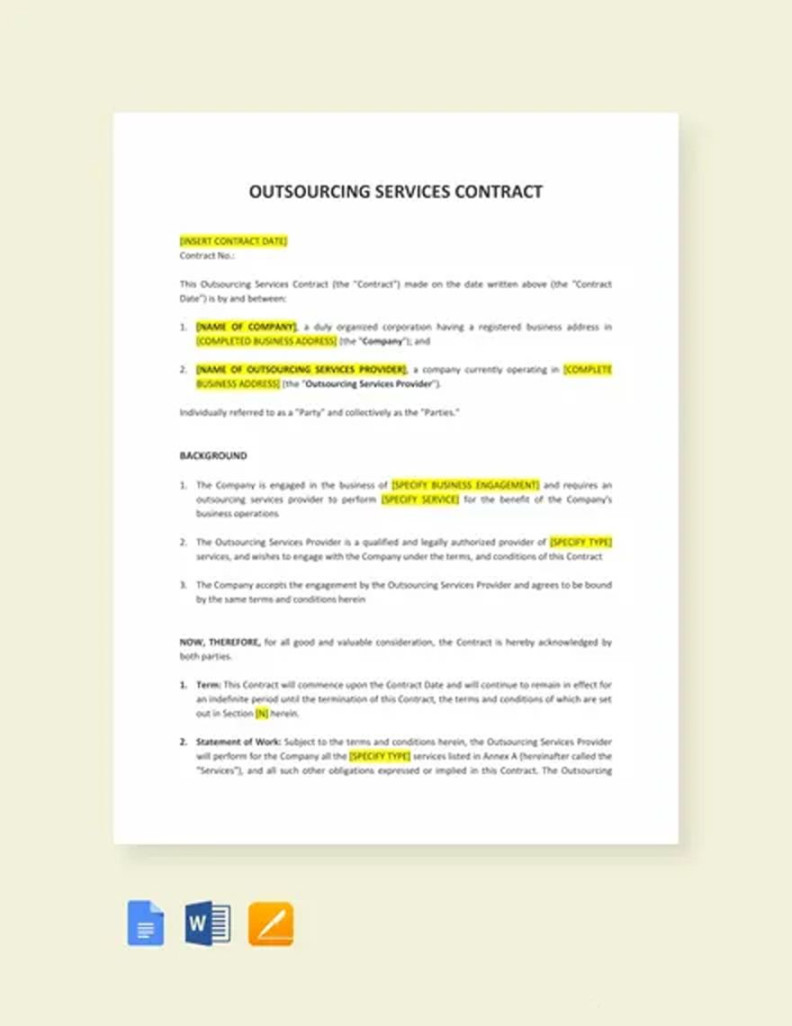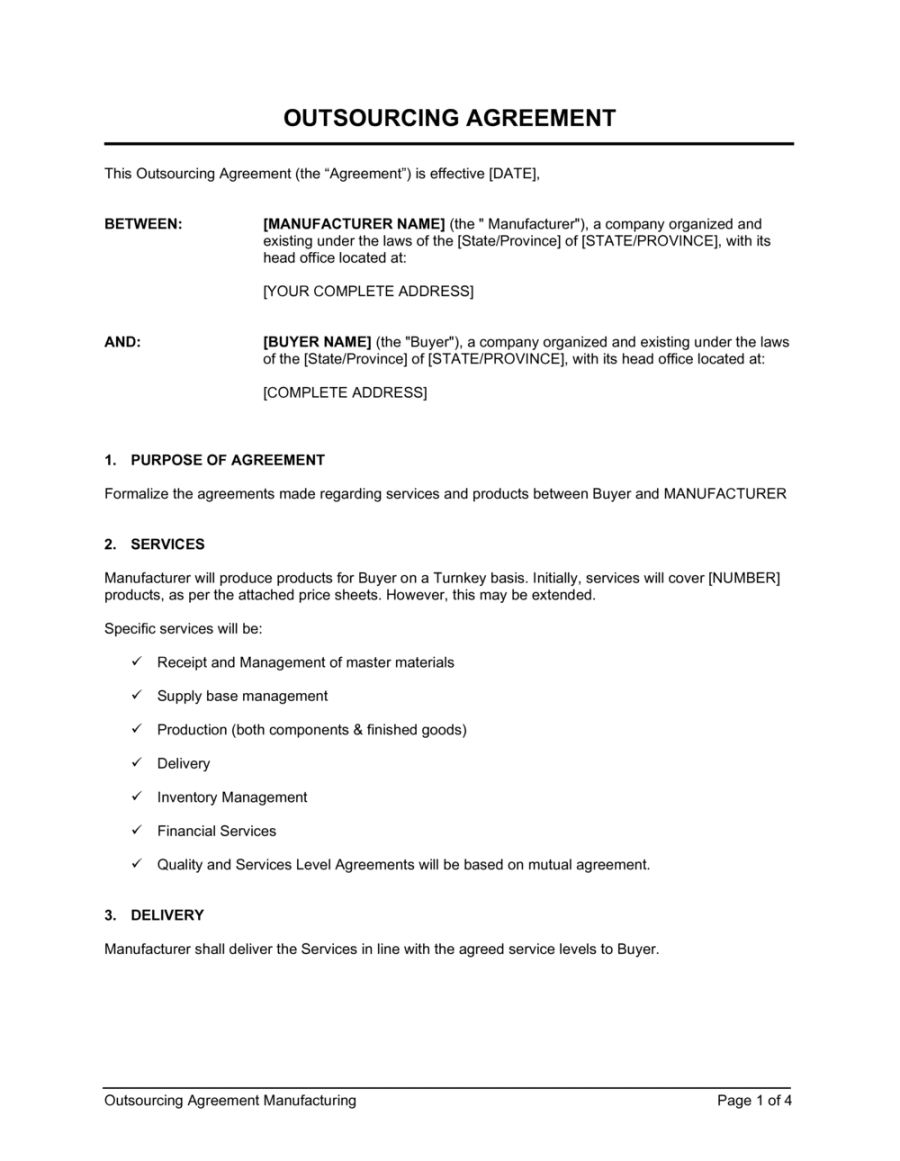Defining the Scope of Work
A well-defined scope of work is the cornerstone of any successful outsourcing contract. This section should outline the specific tasks or deliverables that the outsourcer is expected to provide.
Clear and Concise Language: Use plain, straightforward language to avoid ambiguity.

Image Source: scribdassets.com
Payment Terms and Conditions
The payment terms should be outlined clearly to avoid misunderstandings.
Payment Schedule: Clearly define the payment milestones and the corresponding deliverables.

Image Source: template.net
Termination Clause
A termination clause outlines the conditions under which either party can terminate the contract.
Termination for Cause: Specify the reasons for termination, such as breach of contract or non-performance.

Image Source: business-in-a-box.com
Dispute Resolution
A dispute resolution clause outlines the process for resolving any disputes that may arise.
Negotiation: Specify that the parties will attempt to resolve disputes through negotiation.
Force Majeure
A force majeure clause excuses a party from performance in the event of unforeseen circumstances.
Defined Events: Clearly define the events that constitute force majeure, such as natural disasters, acts of war, or government regulations.
Indemnification
An indemnification clause protects one party from liability for certain claims or damages.
Scope of Indemnification: Clearly define the scope of the indemnification, such as claims arising from the other party’s negligence.
Insurance
An insurance clause may require one or both parties to maintain certain types of insurance coverage.
Required Coverage: Specify the types of insurance coverage required, such as liability insurance or professional liability insurance.
Confidentiality
A confidentiality clause protects sensitive information shared between the parties.
Definition of Confidential Information: Clearly define what constitutes confidential information.
Non-Solicitation
A non-solicitation clause prevents one party from soliciting employees or customers of the other party.
Scope of Non-Solicitation: Clearly define the scope of the non-solicitation, such as employees and customers.
Entire Agreement
An entire agreement clause states that the written contract constitutes the entire agreement between the parties.
Oral Modifications: Specify that oral modifications are not enforceable.
Design Elements for Professionalism and Trust
Clean and Modern Layout: Use a clean and modern layout to create a professional and trustworthy appearance.
By carefully considering these elements, you can create outsourcing contract templates that are both professional and effective.